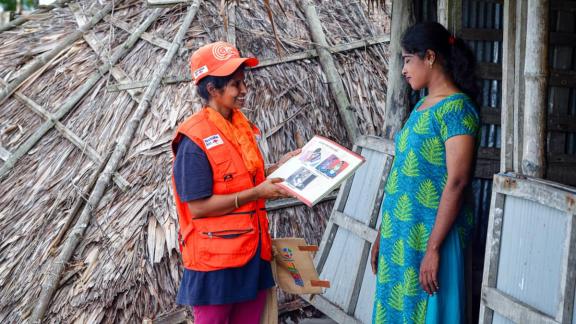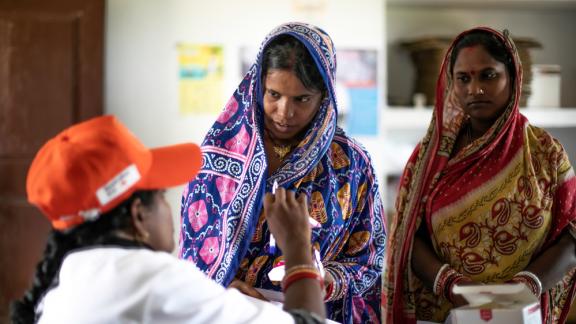The Impact of the USAID Funding Freeze on South Asia
The recent freeze on the United States Agency for International Development (USAID) funding worldwide for 90 days by the American President Donald Trump will have a direct impact on the lives and dignity of millions of people across the globe. The top receivers of economic aid in South Asia, Afghanistan and Bangladesh are believed to be the most impacted in the region.
Over the years since its independence, Bangladesh’s progress in poverty reduction, education, and healthcare has been strengthened through national initiatives as well as foreign aid. The freeze on all USAID funding threatens to undo decades of progress made in sexual and reproductive health and rights in the country. According to UNFPA, nearly 600,000 people, including Rohingya refugees, could lose access to critical maternal and reproductive health services. In Cox's Bazar, the refugee camp complex where more than one million Rohingya refugees reside, international aid has supported nearly half of all births taking place in health facilities. Progress towards sexual and reproductive rights in the country made possible by civil society organizations and communities, now stands at the risk of collapse.
Millions in Bangladesh Stand to Lose Access to Essential SRH Services
The impact of the funding freeze on our partner organizations in Bangladesh has been immediate and severe. One of our partners, working towards improving the sexual and reproductive health and rights (SRHR) of diverse communities in Bangladesh, has seen the suspension of two of their programs which will affect 13,000 people from diverse communities across eight divisions, and 2,400 young gender-diverse people across 18 districts. These aren't just numbers – this means communities that have long been marginalized and excluded from mainstream healthcare systems will lose access to essential sexual and reproductive health services. Dr Noor Mohammed, Executive Director of the Population Services and Training Centre (PSTC), adds, “These funding cuts will have far-reaching consequences for Bangladesh. We are facing the immediate suspension of programs that serve over 1.6 million families across eight districts.” PSTC’s innovative sustainable health development program, which supports over 6.6 million people, and 643 women entrepreneurs has also come to a halt.
when
country
Bangladesh
region
South Asia
Subject
Sexual Health

Dr Noor Mohammed, Executive Director of the Population Services and Training Centre (PSTC), says, “These funding cuts will have far-reaching consequences for Bangladesh. We are facing the immediate suspension of programs that serve over 1.6 million families across eight districts.”

Both our partner organizations support vulnerable populations, including women and girls in remote areas who rely on mobile health units for essential sexual and reproductive healthcare, gender-diverse communities, sex workers and women who use drugs. Legal aid centres by our partner organization, which provided protections and legal aid to gender-diverse groups, have also closed. Additionally, the executive orders by President Trump to weaken diversity and inclusion in America is fanning a global cultural backlash towards structurally excluded communities. For Bangladesh's gender-diverse population, who already face significant social and institutional discrimination, this could also lead to a rollback of fundamental rights.
Beyond Solidarity: A True South-to-South Cooperation
More than half a century after its independence, it is concerning that the development of Bangladesh and other low- and middle-income countries remains so vulnerable to policy shifts in Washington. South Asia, as part of the global South, must respond to this crisis with collective solidarity and action. To protect critical services like menstrual regulation, maternal and childcare, and STI and HIV/AIDS screening and treatment – we need immediate mobilization of regional resources. The crisis has prompted us to strengthen locally led funding mechanisms. The freeze on the USAID funding isn’t a temporary setback – it's a reminder that we need a fundamental change in how we approach development and humanitarian aid, especially one that is influenced by an increasingly global conservative movement with a strong anti-gender and anti-rights agenda.
To advance the rights and health of the most vulnerable populations, a true south-to-south cooperation beyond the funding crisis must emerge, one that is rooted in imagining a more equitable, sustainable and just future for all. As we come together to navigate the crisis, we must strengthen our commitment to protecting the rights, dignity, and wellbeing of all people – especially the most vulnerable. We must continue to fight for a future where access to essential sexual and reproductive healthcare and fundamental rights is not compromised.











